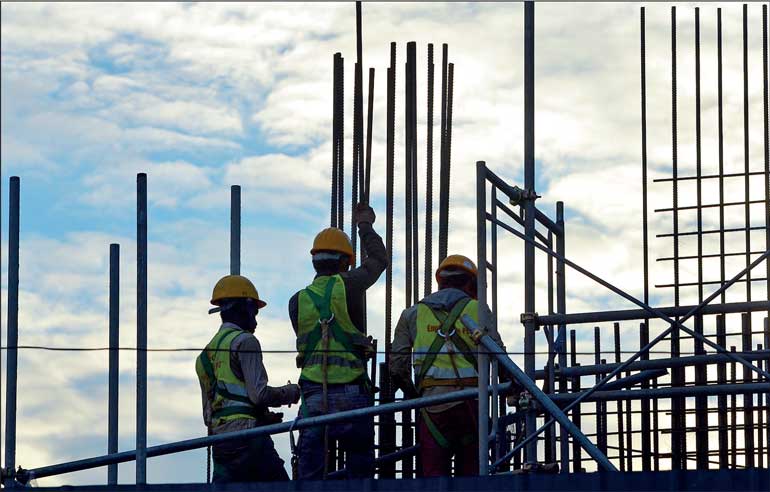Saturday Feb 14, 2026
Saturday Feb 14, 2026
Friday, 22 October 2021 00:00 - - {{hitsCtrl.values.hits}}

Over the past year, the volatility of construction material prices has wreaked havoc on construction budgets and caused many disputes between clients, general contractors, subcontractors and material suppliers
Payment delays
Payment delays are a popular vehicle of destruction for contractors which continually stand to hinder various stages of the construction process.
Due to various reasons (a few being personal bureaucratic bargains, excessive requests for additional documentation and clarifications, wrong engineering estimates, redundant payment procedures and price escalations) the contractors’ job is delayed leading them to incur sever losses, namely upsetting cash-flows, losing labour, forcing bills to be claimed after the given time-boundary and falling into debt.
documentation and clarifications, wrong engineering estimates, redundant payment procedures and price escalations) the contractors’ job is delayed leading them to incur sever losses, namely upsetting cash-flows, losing labour, forcing bills to be claimed after the given time-boundary and falling into debt.
Usually, remunerations for these delays are provided to contractors in the form of interest payments, currently formulated as AWPLR+1%. However, contractors pay banks between awplr+3% all the way up to awplr+8% if limits are overdrawn (with most contractors being over this limit). Therefore, at the extreme minimum, contractors should be provided with interest payments of at least AWPLR+ 3%, if we are to practically cover costs, or at least a part of our cost of payment delays.
One way of doing this is made possible by FIDIC Contracts which states that: “…these financing charges shall be calculated at the annual rate of three percentage points above the discount rate of the central bank in the country of the currency of payment on a monthly compounded interest…”
A comparative study was made between CIDA’s version and FIDIC’s version based on the year 2019 bulletin of Central Bank for a duration of five months and found that the outcome of interest from both versions differ only by 1.6%. Yet, this still seems a better deal for the industry than our existing terms.
Imprecise price escalation clauses
Comparative to materials used in other industries, construction materials are an item that face remarkably extreme price escalations very rapidly, sometimes within hours. As such price escalations are a vital part of construction contracts and its impacts can make or break a contractor, especially small contractors undertaking small-scale projects, which equates to an adverse impact on the implementation of development programs such as ‘Saubhagye Dakma’ as well. If handled improperly, price escalation can lead to delayed completion, higher cost, lower quality and budget shortage, financial overrun of contractors and the unsustainability of Sri Lanka’s construction industry.
Over the past year, the volatility of construction material prices has wreaked havoc on construction budgets and caused many disputes between clients, general contractors, subcontractors, and material suppliers. For example, steel prices have risen by 60% while structural steel has increased by about 80%. On average, the general increase in price for construction materials is 30-40%.
This begs the question: do price escalation clauses accurately account for real-time price fluctuations in construction materials?
The current state of the construction industry proves that it doesn’t. A few reasons for this are:
What should be done?
The answer is, no authority or regulatory body can precisely gauge such rapid changes in price, together with the volatility of exchange rates, market value and the band of other economic and socio-economic variables.
Therefore, we are in urgent need of a provision in the contract that allows the contractor to change input percentages if they have evidence of erroneous input percentages. Relevant authorities can evaluate these requests in accordance with the state of the existing market.
(The writer is President of the Ceylon Institute of Builders.)